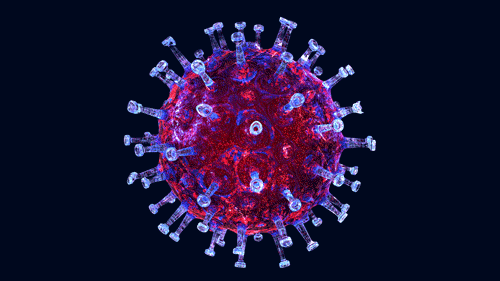You’ve probably heard of stem cells: human cells that have the potential to develop into many different types of cells, allowing them to repair and rejuvenate damaged tissue throughout the body.
Stem cell therapy — or regenerative medicine, as it’s also known — has yielded promising results for a host of medical conditions, including joint pain, bone fracture defects, degenerative spine conditions and ligament or tendon injuries. Now, as coronavirus sweeps the globe, some are touting stem cell therapy as an effective treatment for COVID-19. But is the evidence there?
Can Stem Cells Treat COVID-19
The short answer: no. There are currently a number of studies underway around the world assessing the efficacy of regenerative therapy for treating COVID-19, but so far, nothing is conclusive. Most recently, the New York-based regenerative medicine company Mesoblast announced a 300-person trial. While some doctors involved in the trial have reported that the initial results look promising, they acknowledge there isn’t nearly enough data to draw any definitive conclusions.
There are many types of regenerative medicine therapies, but most of the COVID-19/stem cell studies are examining the therapeutic potential of mesenchymal stem cells, or MSCs. These are among the most researched adult stem cells, and scientists have studied their impact on a wide range of conditions, from Alzhiemer’s to arthritis. While MSCs haven’t yet emerged as a magic bullet for any one condition, evidence suggests they can promote tissue regeneration and repair, reduce inflammation, and help regulate immune response. What’s more, studies have shown MCSs can repair virus-induced lung damage in mice, which has given scientists hope for their potential to alleviate acute respiratory distress in COVID-19.
However, many researchers and doctors have expressed concerns about regenerative therapy for COVID-19. For starters, it’s unclear whether MSCs can survive long enough in human lungs to be effective. It’ll be interesting to see how the research plays out, but in the meantime, stem cell therapy should not be considered a tried-and-true treatment for COVID-19.
While the data on COVID-19 is shaky, a growing body of evidence suggests stem cell therapy is effective for another conditions: joint and spine pain. Tens of millions of Americans suffer from joint pain, and more than a million undergo orthopedic surgery every year. These procedures entail some risk, are complicated, and might not be the best option for mild to moderate osteoarthritis. Now, thanks to new research findings, stem cell therapy has emerged as an alternative injury treatment for patients looking for a more natural, less invasive option.
Dr. Richard Gayles is a top interventional pain specialist at Nona Medical Arts with offices in Merritt Island and Orlando, Florida. He’s a big proponent of stem cell therapy for patients with mild to moderate joint and spine pain. “For patients who are trying to avoid surgery, regenerative medicine offers a more natural, holistic alternative. I’ve seen some really promising results, including myself” he says.
In a simple, minimally invasive procedure, Dr. Gayles collects stem cells from the patient’s own tissue and re-injects the cells into the affected joints. Sometimes, the injections are mixed with platelet rich plasma, or PRP, taken from the patient’s own blood. The stem cells exert their effect by possibly, developing into new, healthy cartilage cells while reducing inflammation and pain. The platelets in the PRP carry out their natural healing functions, giving the regenerative process an additional boost. In short, stem cell therapy enhances the natural self-repairing capacity of the human body.


